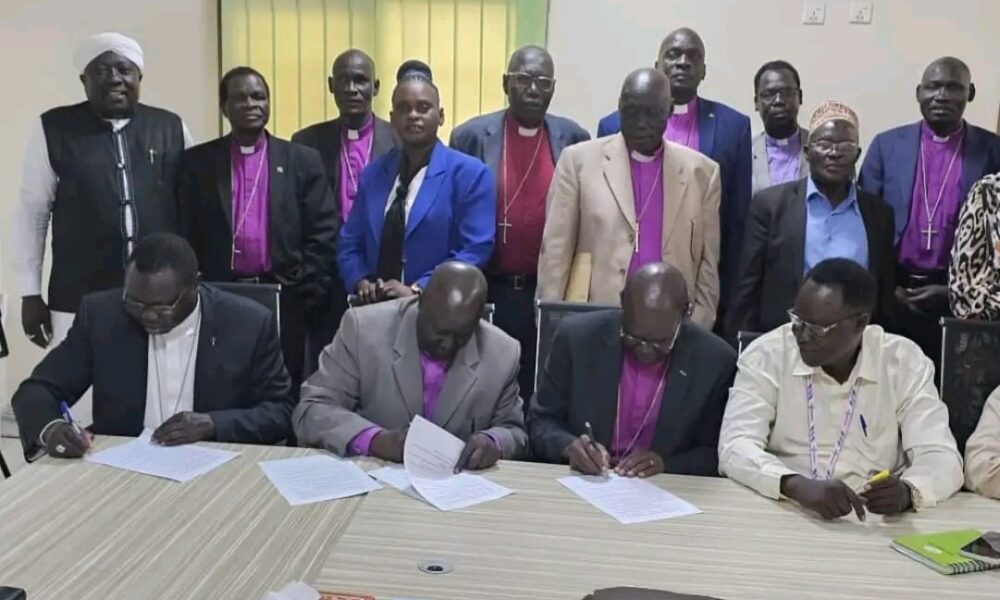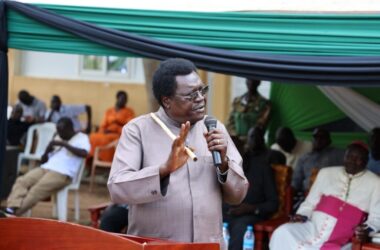By Kei Emmanuel Duku
Central Equatorial State (CES) religious leaders gathered for a two-day consultative meeting from Friday, the 27th, to Saturday, the 28th, to address pressing challenges faced by local communities.
The meeting culminated in a series of resolutions aimed at improving the situation for the state’s citizens.
These challenges include illegal exploitation and mining of minerals, illegal logging, land grabbing, Conflict over grazing land, harassment of the civil population at the South Sudan-Uganda border, and continuous encroachment into South Sudan territories by Ugandan authorities.
During the meeting, the clergies further highlighted the rampant insecurity perpetuated by a section of the non-signatories to the Revitalized Peace Agreement, which is hindering the effective return of refugees to their respective locations.
The worsening economic situation, compounded by unnecessary checkpoints and customs, has resulted in a high cost of living, making it difficult for the civil population to meet their basic needs.
The two-day meeting concluded with the church leaders agreeing on seven resolutions calling on both the national and state governments to preserve peace and security by demilitarizing heavily populated areas by relocating army barracks to designated areas.
The clergies urged the national government to expedite the payment of salaries to civil servants, organized forces, and the national army to improve their well-being and professionalize the sector.
South Sudan civil servants have gone more than six months without receiving salaries, although the government recently promised to clear them in three phases.
Residents of Central Equatorial State, particularly Linya, Kajo-Kejio, Moroboi Yei, and Juba County, have been struggling with the influx of cattle herders and illegal loggers.
Conflicts arising from land-grabbing and illegal settlement continue to cause havoc within Juba City and parts of Juba County.
The church leaders appealed to the state authorities to engage with military units causing various forms of insecurity within the state to achieve sustainable, durable, and lasting peace.
Additionally, they urged the presidency and state governments to relocate cattle herders from Bor, Nomadic Ambororo, and other herders within the state to reduce conflicts caused by livestock destroying farmlands and properties.
The church leaders further noted that to ensure a peaceful return of refugees and internally displaced persons, it is necessary to engage other aggrieved parties, including military units, to find durable solutions that would ensure peaceful coexistence between holdout groups and citizens of Central Equatorial State.
They also call for concerted efforts among the residents of Central Equatorial State to spread messages of peace, love, and unity among leaders and communities.
The clergies underscored the importance of inclusive dialogue as a vibrant tool in achieving peace and resolving conflicts.
“Removal of the unnecessary checkpoints on routes within the state is very important because it creates trust and once peace is achieved, psychosocial support programs and the creation of cooperatives to support farmers can be effectively implemented” stated the part of the resolutions.
Moderated by Alex Gabriel Ladu of the Presbyterian Church of South Sudan, Equatorial Presbytery, the seven resolutions of the consultative meeting were signed by Archbishop Dr. Paul Pitya Yugusuk of the Episcopal Church of South Sudan, Central Equatorial Internal Province, Bishop Santo Loku Pio of the Catholic Church-Juba, Sheik Walid Jumbulat Walid of the Islamic Council of CES, Bishop Michael Taban Toro, and Bishop Martin Mogga Ifoga of the Sudan Pentecostal Churches and Deputy Presiding Bishop of the Africa Inland Church South Sudan, respectively.




